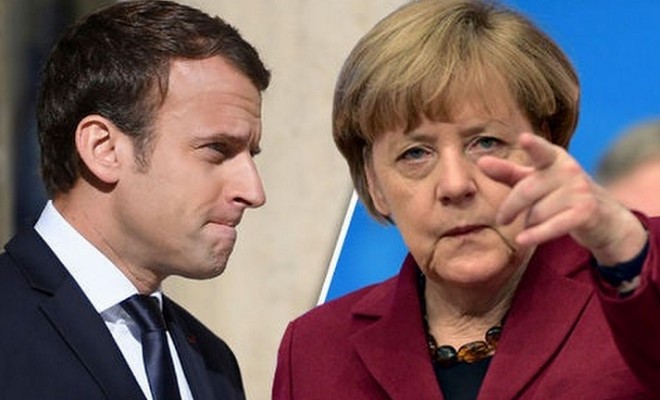
Is this Europe’s federalizing moment?
Will the German coalition agreement mark a breakthrough in the EU’s transformation into a genuine federation? That is too early to say. The Social Democrats (SPD) still need to give the green light at their party congress this weekend. But even if they do, some of the deal’s proposals for EU policies are bound to be controversial and deepen the already-existing divides between EU members.
But first, the good news. There is growing recognition that the EU’s democratic deficit has amplified the bloc’s recent crises, as politically charged, Europe-wide decisions were taken without proper democratic accountability. The draft German coalition agreement promises to strengthen the European Parliament, including its control of the European Stability Mechanism (ESM), the ad hoc bailout fund created to respond to fiscal crises at the Eurozone’s periphery. The ESM would be transformed into a “parliamentary-controlled European Monetary Fund, which should be enshrined in Union law.”
Yet, there is a more fundamental problem. European leaders have a limited understanding of federalism. The term is commonly used as a shorthand for transferring competencies to Brussels in an open-ended way. The coalition agreement thus calls for bigger contributions by Germany to European budgets, in order to fund “economic stabilization and social convergence and support for structural reforms in the euro area, which could be the starting point for a future Eurozone investment budget.”
A federalization project worthy of its name would start by identifying those public goods that need to be provided at the EU’s, or the Eurozone’s, level: defense, foreign, and trade policies, pan-European infrastructure projects, and perhaps a minimal social safety net to facilitate free movement of labor. And it would have to go hand-in-hand with the identification of policy and spending areas that are to remain outside of Brussels’ reach. Alas, the coalition agreement — as well as most such conversations in Europe — turns the logic upside down by positing the transfer of competencies and spending power as a process, typically saying nothing about how the additional funds are to be used.
Here is the most worrying aspect of it all. Not even staunchly pro-European politicians are articulating a positive vision for the EU’s future — the why of the European project — that would differ markedly from Emmanuel Macron’s “Europe That Protects.” While the German coalition agreement rejects protectionism and pays lip service to economic dynamism and innovation, its scant practical proposals — disproportionately focused on fighting “tax dumping, tax fraud, and tax avoidance” — are unlikely to make the EU a better place to do business.
The document goes on to single out the US tech giants Google, Apple, Facebook, and Amazon as examples of companies “playing EU member states off each other” in order to minimize their tax liability. The EU’s response should be the completion of a common corporate tax base — to which there is arguably some economic merit — and the imposition of minimum corporate rates, thus cracking down on supposedly harmful tax competition from countries such as Ireland, Slovakia, and Estonia.
Except that it is difficult to see such competition as unequivocally harmful. Base-broadening, rate-cutting tax reforms have had pro-growth effects in countries that adopted them — in some cases quite dramatic ones. Across the EU, meanwhile, there is little evidence of a race to the bottom: although statutory rates on corporate income decreased, tax revenues remained stable. But even if such processes were underway, a shift away from the taxation of capital toward other bases would be consistent with economic efficiency, which urges to tax more “elastic” (e.g. mobile) bases less heavily.
Whatever its substantive merits, a Franco-German push for corporate tax harmonization is going to strengthen centrifugal forces in smaller EU countries, some of them governed by authoritarian populist governments, already alienated from Brussels over questions concerning refugees and rule of law. Regardless of what one thinks of the emerging Franco-German consensus, to deepen such divides unnecessarily at this time would do the European project a major disservice.
Dalibor Rohac is a research fellow at the American Enterprise Institute (AEI), where he studies European political and economic trends. Specifically, he is working on Central and Eastern Europe, the European Union (EU) and the eurozone, US-EU relations, and the post-Communist transitions and backsliding of countries in the former Soviet bloc. He is concurrently a visiting junior fellow at the Max Beloff Centre for the Study of Liberty at the University of Buckingham in the UK and a fellow at the Institute of Economic Affairs in London.




